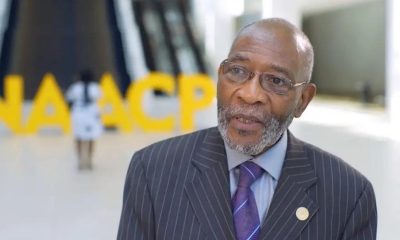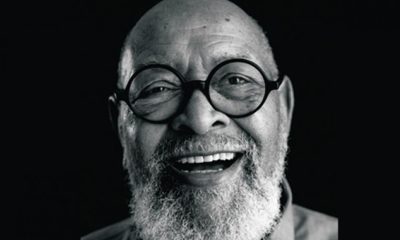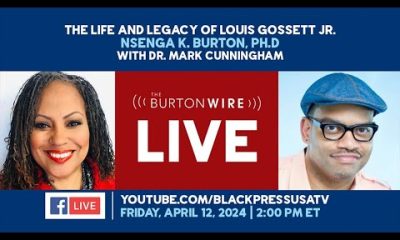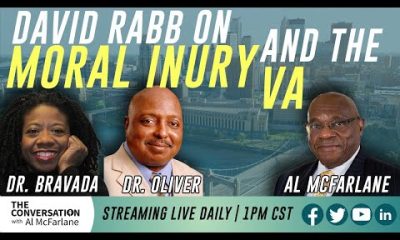Bay Area
Unsatisfied with Wages, Working Conditions, Urban Ore Workers Try to Unionize
Workers at Berkeley’s popular salvaged goods store, Urban Ore, filed a petition to the National Labor Relations Board (NLRB) stating their intention to form a union through the Industrial Workers of the World (IWW) on February 2.
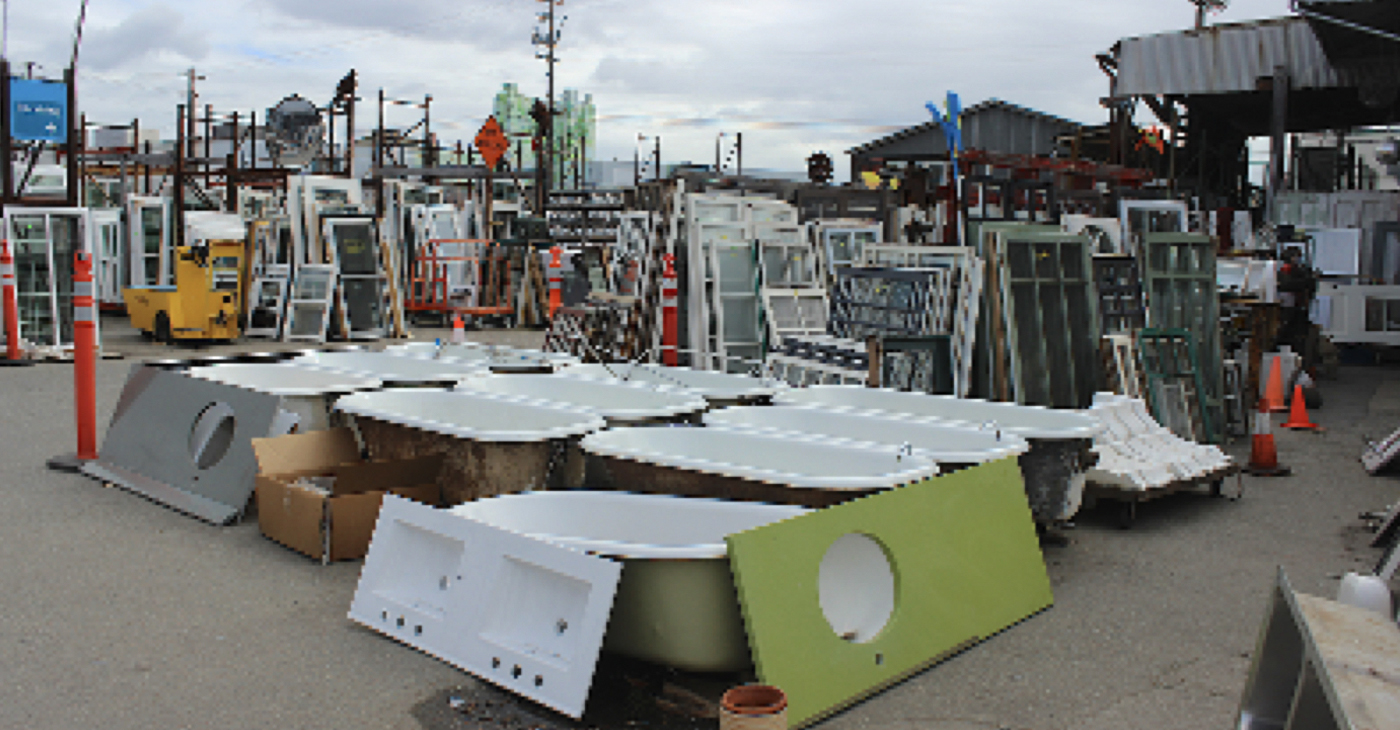
By Zack Haber
Workers at Berkeley’s popular salvaged goods store, Urban Ore, filed a petition to the National Labor Relations Board (NLRB) stating their intention to form a union through the Industrial Workers of the World (IWW) on February 2.
That same day, an Instagram account associated with the union drive posted a statement voicing support for the store and its mission of stopping waste while also pushing for higher wages and scheduling reform for workers.
“We are proud to work at Urban Ore, and we want to make it even better,” reads the statement. “Urban Ore allows its customers a more sustainable alternative for shopping, and we want it to provide more sustainable jobs.”
On February 5, workers held a rally to support their union drive outside of the store. Members of East Bay DSA and several unions, such as ILWU, Bay Area TANC, and the National Union of Health Care Workers, accompanied the workers.
The NLRB will soon hold a secret ballot election for the store’s 25 union eligible employees. If a majority votes to approve the union, it will be officially recognized.
Benno Giammarinaro, who works in Urban Ore’s merchandise receiving department, said he’s “definitely optimistic” employees will secure enough ‘yes’ votes to unionize. As part of their union petition filing, a majority of the store’s employees have already submitted signed cards indicating a desire to form a union.
Mary Van Deventer told this reporter that she and fellow Urban Ore co-owner Dan Knapp would not do an interview. She did, however, e-mail a written statement from the store saying it “respects the rights of its employees to unionize if that is what a majority desire.”
Van Deventer’s statement also said the company offers “very competitive pay.” Urban Ore pays its non-managerial staff a base wage of $13.60 an hour, which is less than Berkeley’s minimum wage of $16.99. But these employees also get fluctuating additional wages as a portion of the store’s gross income goes to them.
In January, this proportion was raised from 10% to 15%. This year the owners estimate the income share to provide a $9.25 boost to the base wage, meaning that, in total, they expect workers to make around $22.85 per hour.
Urban Ore worker Sarah Mossler said that she’s not against income-sharing, but that the current model often leaves her worried about whether or not she can pay her bills.
“I’d be fine with it if we had a stable, minimum living base wage,” said Mossler. “But it’s been incredibly stressful for me because my rent is the same every month while my paychecks aren’t.”
The owners describe the income-share as an “incentive” for workers, but Giammarinaro thinks the current model “puts the risk of the business on the workers,” as factors beyond their control, such as the weather, affect sales.
“If there’s a rainy week,” he said, “merchandise gets damaged, and people don’t come out as much. This means we make several dollars an hour less than usual.”
Ultimately workers feel that their paychecks, even with income-sharing, make living in the Bay Area difficult, and that the wage rate has contributed to high employee turnover.
“We are struggling to afford living in the community that we love,” reads the Urban Ore worker statement on Instagram. “This has created a chronic understaffing problem.”
According to Giammarinaro, 19 Urban Ore employees have left since he first started working there in May of 2021. Currently, the store has 31 workers employed below the senior management level.
Giammarinaro feels the company is in a good position to raise wages to address the turnover as sales have surged since COVID started. The store, which sells mostly donated goods like doors, furniture, appliances and media, has taken in about $7 million in the last two years.
In a letter that Operations Manager Max Wechsler sent to employees this year announcing the income-share percentage rate increase, he stated that, except for its mortgage, Urban Ore is “debt-free.”
Both owners and workers agree that working at Urban Ore is physically demanding. In their statement, the owners describe the jobs as “physical work for all staff,” and that “three tons of goods” enter the store each day.
For most workers, this means lots of lifting. Giammarinaro often finds himself exhausted, saying “almost every day I immediately come home and plop on my bed after work.” Mossler thinks addressing understaffing would make doing such lifting safer.
“When you’re lifting something designed for lots of people to lift,” she said, “and you’re on your own, it’s dangerous.”
Giammarinaro and Mossler both said that in addition to addressing wages and understaffing, they want a union in order to have a say in how the business is run. Recently, Mossler decided to step down from a position in management she had been promoted to in order to be eligible to be a part of a potential Urban Ore union.
While she had taken the management position with the goal of influencing the business and helping co-workers, she didn’t find that method effective.
“I took the job as a manager because I thought that was the way to make the place better and advocate for the people I work with,” she said, “but I quickly saw that I just got more facetime with people that didn’t hear my ideas or take them seriously.”
According to Giammarinaro, one thing workers specifically want is time set aside for cleaning the store. Currently, all in-store cleaning has to be done during business hours, which makes it difficult to maintain the store.
“People could really clean, organize merchandise, and make things look nice if the store could close early once every few weeks, or if people could come in a bit early sometimes,” he said.
In recent years, workers have objected to the manner in which Urban Ore has terminated certain employees. Last summer, 15 workers signed a statement which called for a terminated worker to be rehired. The letter stated the worker had faced “mistreatment” and that their absence would “have a significant impact on revenue, workloads and organizing.”
While that employee was never rehired, workers, like Mossler, want a ‘just cause’ clause in their contract to make it so owners have to give a reason for terminating an employee in the future. Currently, Urban Ore, like all California businesses that don’t have contracts requiring otherwise, can terminate employees “at-will” without giving a reason.
“We think that the at-will employment can rear its ugly head,” said Mossler.
In their e-mail, Urban Ore’s owners stated that this year they are “working toward transitioning to become a worker-owned cooperative,” a transition they have spoken about in the press since 2017.
According to Giammarinaro, workers support such an idea but want to have a voice, through a union, in how a potential cooperative could be structured.
“We agree with a worker-owned cooperative model and thinking unionizing first will help,” he said. “We don’t think we need a coop to start making workplace democracy.”
Activism
S.F. Black Leaders Rally to Protest, Discuss ‘Epidemic’ of Racial Slurs Against Black Students in SF Public School System
Parents at the meeting spoke of their children as no longer feeling safe in school because of bullying and discrimination. Parents also said that reported incidents such as racial slurs and intimidation are not dealt with to their satisfaction and feel ignored.

By Carla Thomas
San Francisco’s Third Baptist Church hosted a rally and meeting Sunday to discuss hatred toward African American students of the San Francisco Unified School District (SFUSD).
Rev. Amos C. Brown, president of the San Francisco NAACP and pastor of Third Baptist Church, along with leadership from local civil rights groups, the city’s faith-based community and Black community leadership convened at the church.
“There has been an epidemic of racial slurs and mistreatment of Black children in our public schools in the city,” said Brown. “This will not be tolerated.”
According to civil rights advocate Mattie Scott, students from elementary to high school have reported an extraordinary amount of racial slurs directed at them.
“There is a surge of overt racism in the schools, and our children should not be subjected to this,” said Scott. “Students are in school to learn, develop, and grow, not be hated on,” said Scott. “The parents of the children feel they have not received the support necessary to protect their children.”
Attendees were briefed last Friday in a meeting with SFUSD Superintendent Dr. Matt Wayne.
SFUSD states that their policies protect children and they are not at liberty to publicly discuss the issues to protect the children’s privacy.
Parents at the meeting spoke of their children as no longer feeling safe in school because of bullying and discrimination. Parents also said that reported incidents such as racial slurs and intimidation are not dealt with to their satisfaction and feel ignored.
Some parents said they have removed their students from school while other parents and community leaders called on the removal of the SFUSD superintendent, the firing of certain school principals and the need for more supportive school board members.
Community advocates discussed boycotting the schools and creating Freedom Schools led by Black leaders and educators, reassuring parents that their child’s wellbeing and education are the highest priority and youth are not to be disrupted by racism or policies that don’t support them.
Virginia Marshall, chair of the San Francisco NAACP’s education committee, offered encouragement to the parents and students in attendance while also announcing an upcoming May 14 school board meeting to demand accountability over their mistreatment.
“I’m urging anyone that cares about our students to pack the May 14 school board meeting,” said Marshall.
This resource was supported in whole or in part by funding provided by the State of California, administered by the California State Library via California Black Media as part of the Stop the Hate Program. The program is supported by partnership with California Department of Social Services and the California Commission on Asian and Pacific Islander American Affairs as part of the Stop the Hate program. To report a hate incident or hate crime and get support, go to CA vs Hate.
Bay Area
Mayor London Breed: State Awards San Francisco Over $37M for Affordable Housing
On April 30, Mayor London N. Breed announced San Francisco has been awarded more than $37.9 million in funding from the California Department of Housing and Community Development (HCD) as part of the State’s Multifamily Housing Program (MHP). The HCD loan will provide the final funding necessary for development of Casa Adelante – 1515 South Van Ness, a 168-unit affordable housing project located in San Francisco’s Mission District.

By Oakland Post Staff
On April 30, Mayor London N. Breed announced San Francisco has been awarded more than $37.9 million in funding from the California Department of Housing and Community Development (HCD) as part of the State’s Multifamily Housing Program (MHP).
The HCD loan will provide the final funding necessary for development of Casa Adelante – 1515 South Van Ness, a 168-unit affordable housing project located in San Francisco’s Mission District.
The new development at 1515 South Van Ness Ave. will provide 168 affordable homes to low-income families, formerly homeless families, and persons living with HIV earning between 25-80% of the San Francisco Area Median Income (AMI).
In addition, the project is anticipated to provide family-friendly amenities and ground floor community-serving commercial spaces that preserve the prevailing neighborhood character of the Calle 24 Latino Cultural District.
“This funding unlocks our ability to move on building affordable housing units for families in San Francisco at a crucial time. We understand the level of need for more housing that is accessible, and like the state, the city continues to face a challenging budget cycle,” said Breed. “1515 South Van Ness is a good example of what can be achieved in San Francisco when you have strong community partnerships and an unwavering commitment to deliver on critical needs for our residents.”
“From the beginning of my term as Supervisor, I have fought to bring affordable housing to 1515 South Van Ness” said Supervisor Hillary Ronen. “In the interim, the site has been utilized for homeless services and shelter, and I am thrilled that HCD has recognized the value of this development, and we are finally ready to break ground and bring 168 affordable homes to low income and formerly homeless families in the Mission.”
Owned and occupied by McMillan Electric Company until 2015, the City and County of San Francisco purchased 1515 South Van Ness Avenue in June 2019 with the intent of developing new affordable housing.
In November 2020, the San Francisco Mayor’s Office of Housing and Community Development (MOHCD) released a Multi-site Request for Qualifications (RFQ) seeking qualified developers to build affordable housing on the site, and subsequently selected Chinatown Community Development Corporation (CCDC) and Mission Economic Development Agency (MEDA) in May 2021 to develop the site.
The project is expected to begin construction in winter 2025.
“A strong, long-term push by Mission advocates to make this site 100% affordable is now paying off, with 168 family units that include services and childcare. People of color communities know what they need, and we are excited to be in partnership with a team, consisting of MEDA, CCDC, and MOHCD, that listens,” said Malcolm Yeung, Executive Director at CCDC.
“We are excited to be in partnership with CCDC, yet again, and for the opportunity to develop intergenerational affordable housing in the City’s Mission District,” said Luis Granados, executive director at MEDA.
Increasing housing affordable to lower-income and vulnerable residents is a key priority in the City’s Housing Element which calls for additional funding for affordable housing production and preservation, as well as Mayor Breed’s Housing for All Executive Directive that sets out the steps the City will take to meet the bold goal of allowing for 82,000 new homes to be built over the next eight years.
Tuesday’s funding announcement emphasizes the importance of regional and state collaboration in order to reach our housing and climate goals.
“We are thrilled—not just to bring a project of this size to a community with great need — but to do so with community-based developers and their partners who understand the neighborhood and sensitivities around cultural preservation,” said HCD Director Gustavo Velasquez.
Bay Area
East Bay Regional Park District Issues Rattlesnake Advisory
The East Bay Regional Park District released an advisory today on rattlesnakes, which emerge from winter hibernation in early spring and become more active. Warm weather can bring more potential for rattlesnake encounters with humans and dogs, particularly along trails and roads.
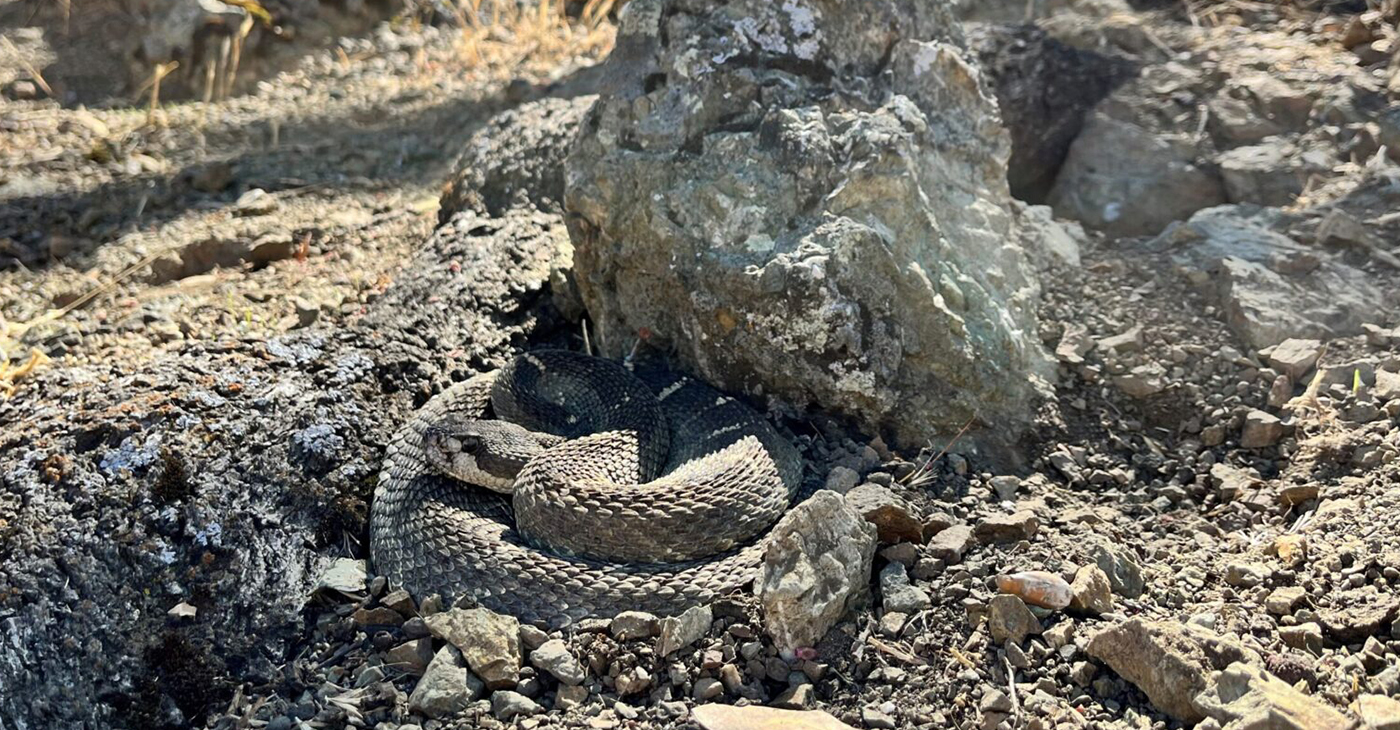
The Richmond Standard
The East Bay Regional Park District released an advisory today on rattlesnakes, which emerge from winter hibernation in early spring and become more active.
Warm weather can bring more potential for rattlesnake encounters with humans and dogs, particularly along trails and roads.
Visitors are encouraged to avoid hiking alone in case of an emergency, to scan the ground ahead as they walk, jog or ride, stay on trails avoiding tall grass, and to look carefully around and under logs and rocks before sitting down. Keep your dog on your leash to be extra safe, park officials said.
If you encounter a rattlesnake, leave it alone – it is unlawful to capture or harm one. Move carefully and slowly away or around it and give it plenty of space, park officials said.
Those who are bitten by a rattlesnake are instructed to stay calm by lying down with the affected limb lower than the heart, then having someone call 911.
Getting medical attention is critical.
Those bitten should not use tourniquets, “sucking,” or snake bite kits. If you are by yourself, walk calmly to the nearest source of help to dial 911, do not run.
If bitten by any other type of snake, wash the wound with soap and water or an antiseptic and seek medical attention.
Not sure what bit you? Check the bite for two puncture marks (in rare cases one) associated with intense, burning pain, which is typical of a rattlesnake bite. Other snakebites can leave marks without associated burning pain.
The Northern Pacific rattlesnake is the species found in East Bay Regional Parks. Snakes are important to the natural environment, helping to control rodents and other reptile populations. But enjoy them from afar.
For more information, download the Park District’s Common Snakes brochure or watch our Gopher Snake or Rattlesnake video to learn how to tell the difference between rattlesnakes and gopher snakes. Additional information is available at ebparks.org/safety/wildlife-encounters.
-

 Community3 weeks ago
Community3 weeks agoFinancial Assistance Bill for Descendants of Enslaved Persons to Help Them Purchase, Own, or Maintain a Home
-

 Business3 weeks ago
Business3 weeks agoV.P. Kamala Harris: Americans With Criminal Records Will Soon Be Eligible for SBA Loans
-

 Activism4 weeks ago
Activism4 weeks agoOakland Post: Week of April 10 – 16, 2024
-

 Community3 weeks ago
Community3 weeks agoAG Bonta Says Oakland School Leaders Should Comply with State Laws to Avoid ‘Disparate Harm’ When Closing or Merging Schools
-

 Activism2 weeks ago
Activism2 weeks agoOakland Post: Week of April 24 – 30, 2024
-

 City Government3 days ago
City Government3 days agoCourt Throws Out Law That Allowed Californians to Build Duplexes, Triplexes and RDUs on Their Properties
-

 Community2 weeks ago
Community2 weeks agoRichmond Nonprofit Helps Ex-Felons Get Back on Their Feet
-

 Community2 weeks ago
Community2 weeks agoOakland WNBA Player to be Inducted Into Hall of Fame

